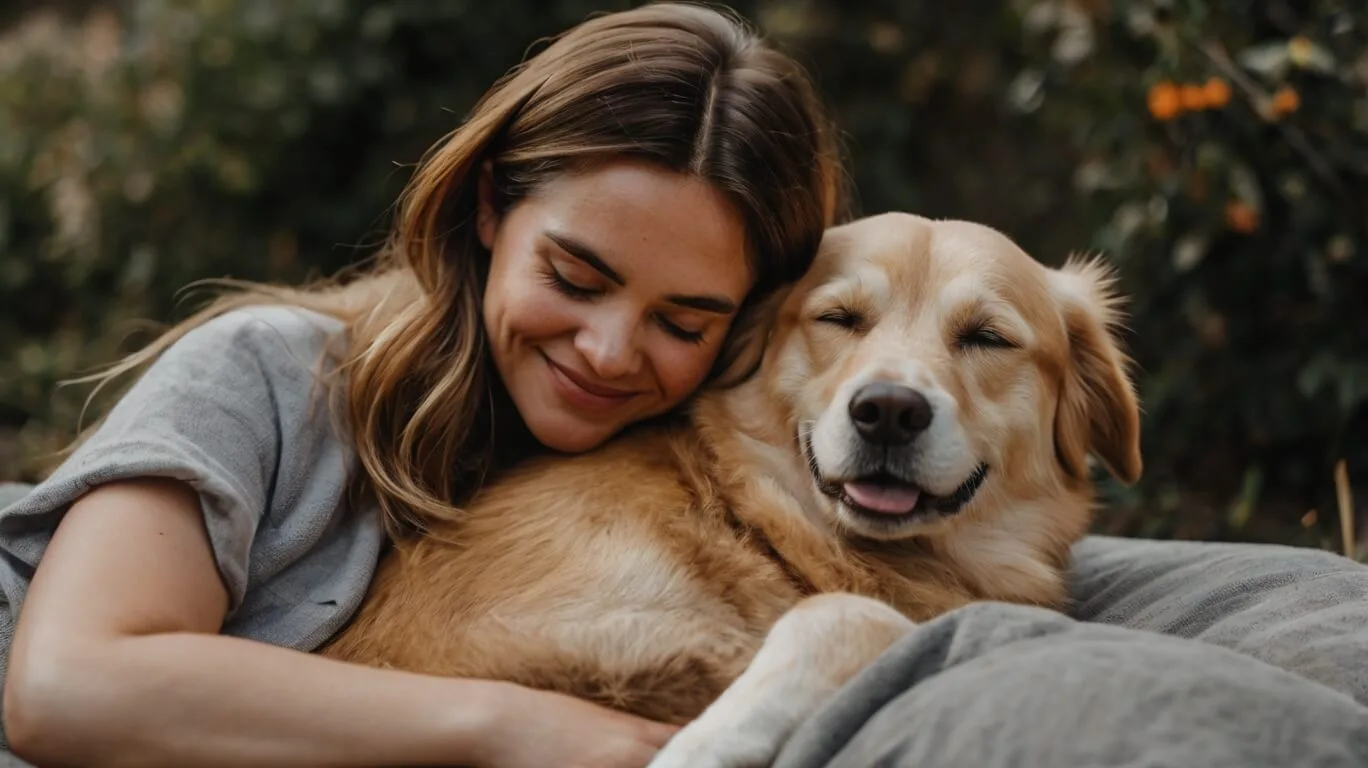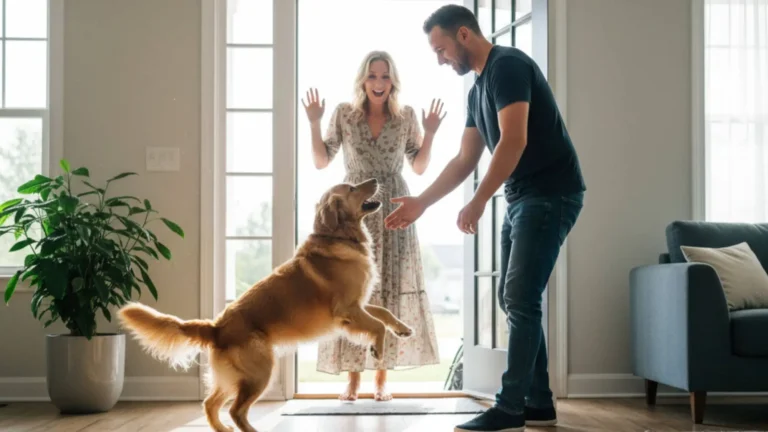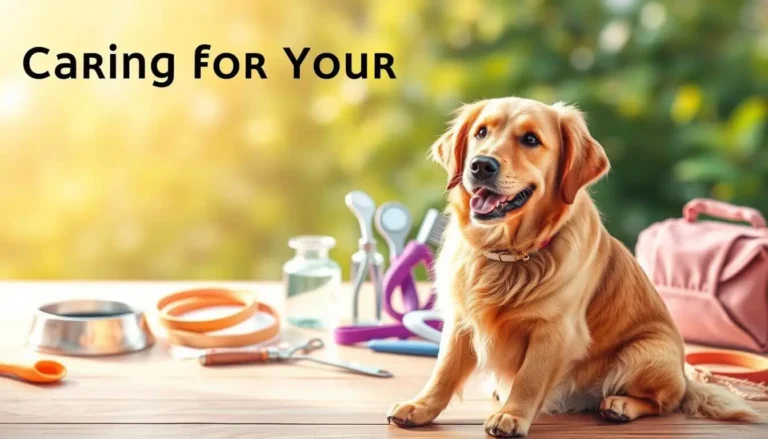Why Do People Like Dogs? 10 Heartwarming Reasons Explained
Have you ever noticed how a dog can instantly brighten someone’s day with just a wag of the tail or a playful nudge? From loyal golden retrievers to tiny, spirited terriers, dogs have a special way of winning our hearts — and it’s not just about their fluffy ears or puppy-dog eyes.
But why do people like dogs so much? The answer goes deeper than their adorable looks. It’s about the emotional connection, the unconditional love, and the joy they bring into our daily lives. Whether you’re a lifelong dog owner or just someone who melts at the sight of a wagging tail, there’s something universally heartwarming about the bond between humans and dogs.
In this post, we’ll explore 10 powerful and heartwarming reasons why dogs are often called “man’s best friend” — from their emotional support and loyalty to the way they teach us responsibility, compassion, and love.
Let’s dive in and discover what makes dogs so incredibly lovable. 🐶❤️
Table of Contents
Dogs Offer Unconditional Love and Loyalty

They Don’t Judge – Dogs Accept You as You Are
One of the most comforting things about having a dog is knowing that you’re completely accepted, flaws and all. In a world where people often feel pressured to look a certain way, act a certain way, or meet specific expectations, dogs offer something rare: genuine, unconditional acceptance.
Your dog doesn’t care if you’re wearing pajamas all day, if your hair’s a mess, or if you’ve had a rough week. Whether you’re feeling on top of the world or battling anxiety or self-doubt, your dog still sees you the same way — with love, trust, and loyalty.
There are no judgments, no criticisms, and no expectations to be perfect. To your dog, you are enough — just as you are.
This is one of the main reasons dogs have such a strong emotional impact on people. They provide a safe space where you can truly be yourself without fear of rejection. For those who struggle with mental health, low self-esteem, or loneliness, this pure, judgment-free connection can be life-changing.
A dog’s simple, wholehearted affection reminds us that love doesn’t have to be complicated. It’s in the small moments — a lick on the hand, a soft nuzzle, a loyal presence by your side — that we’re reminded of how powerful acceptance can be.
Loyal Companions – Once Bonded, a Dog Will Stand by You Through Anything
One of the most admired qualities of dogs — and a key reason why people love them — is their unwavering loyalty. Once a dog forms a bond with you, that connection becomes something sacred. No matter what life throws your way, a loyal dog will stick with you — not because they have to, but because they choose to.
Dogs are pack animals by nature. In the wild, they rely on their pack for survival, trust, and protection. When a dog sees you as part of their pack, you become their world. They will follow you from room to room, wait patiently at the door for your return, and even sleep near you just to stay close. This emotional loyalty goes far beyond obedience — it’s a deep-rooted instinct to protect and stay connected.
There are countless real-life stories of dogs waiting outside hospitals for their owners, traveling long distances to be reunited, or standing between their human and danger without hesitation. These acts of devotion highlight how deeply a dog can bond with a person — a loyalty many people describe as more genuine than what they receive from other humans.
Loyalty from a dog isn’t dependent on your mood, your status, or your circumstances. Whether you’re rich or poor, healthy or sick, happy or struggling — your dog will be there, tail wagging, eyes full of trust, offering silent support and comfort.
This steadfast companionship creates a deep emotional anchor, especially in times of uncertainty or loneliness. For many, just knowing their dog is by their side makes life feel a little more manageable — and a lot more meaningful.
They Sense Your Emotions – Dogs Often React to Sadness or Excitement With Care
Dogs are incredibly intuitive animals. They don’t just pick up on body language or tone of voice — they can actually sense human emotions, often with astonishing accuracy. Whether you’re feeling sad, stressed, anxious, or overjoyed, your dog knows — and they respond in the most compassionate, instinctive ways.
Have you ever noticed your dog coming to sit quietly beside you when you’re upset? Or nudging you with their nose, placing a paw on your leg, or even gently licking your face? These behaviors aren’t random. They are empathic responses, rooted in the dog’s ability to detect subtle emotional cues like your facial expressions, voice pitch, posture, or even changes in your scent.
Studies have shown that dogs can recognize human emotions and even distinguish between happy and sad facial expressions. In fact, some dogs can detect shifts in hormones like cortisol (associated with stress) and oxytocin (linked to bonding and affection), making them incredibly attuned to your internal state.
When you’re excited or happy, dogs often mirror that energy — jumping, wagging their tails, or spinning in circles. When you’re low or withdrawn, many dogs will instinctively quiet down and simply stay close, offering calm, grounding presence without needing to “fix” anything.
This emotional intelligence is one of the key reasons why dogs make such effective therapy and emotional support animals. They offer comfort not just through companionship but through their ability to emotionally connect and respond in a way that makes you feel seen, safe, and cared for — even when you haven’t said a word.
It’s no wonder so many people describe their dogs as their “emotional rock.” In a world where it’s easy to feel misunderstood, your dog just gets it — and that unspoken understanding is a powerful reason why people feel so deeply connected to them.
Dogs Improve Mental and Emotional Health
Stress and Anxiety Relief – Simply Petting a Dog Can Lower Cortisol
One of the most well-documented and widely appreciated benefits of being around dogs is their ability to reduce stress and anxiety. In fact, something as simple as petting a dog can have a measurable impact on your mental health — and science backs it up.
When you gently stroke a dog’s fur or sit with them in a quiet moment, your brain begins to release oxytocin, the “feel-good” hormone associated with bonding, trust, and relaxation. At the same time, levels of cortisol, the hormone responsible for stress, start to decrease. This powerful hormonal shift helps calm the nervous system, slow the heart rate, and ease feelings of anxiety.
This is why dogs are often brought into hospitals, nursing homes, schools, and even corporate offices — their mere presence can create a calming atmosphere. Therapy dogs, in particular, are trained to provide emotional support in high-stress environments such as trauma centers, courtrooms, and mental health clinics.
Beyond the science, there’s something incredibly grounding about a dog’s presence. They don’t rush you, interrupt you, or ask questions — they simply sit beside you, breathe with you, and create a sense of peace in moments of emotional overwhelm. Their warmth, rhythmic breathing, and nonverbal presence act like a natural form of meditation.
For people dealing with chronic stress, depression, PTSD, or anxiety disorders, the daily companionship of a dog can feel like a lifeline. Unlike medications or therapy sessions, dogs offer instant, accessible comfort — no appointment needed.
Even short interactions, such as walking your dog around the block or taking a moment to cuddle on the couch, can have a cumulative effect on your emotional well-being. These small rituals become coping tools that offer relief from the demands of everyday life.
In a world where stress is almost unavoidable, dogs give us the gift of presence, calm, and emotional balance — one wag, cuddle, or nuzzle at a time.
Emotional Support Animals – Many Dogs Are Certified to Help With Mental Health
While all dogs provide love and companionship, some are recognized in a more official capacity as emotional support animals (ESAs) — and their role in mental health support is both powerful and deeply transformative.
Emotional support dogs are not just pets — they’re companions who are prescribed by licensed mental health professionals to individuals struggling with conditions such as anxiety, depression, PTSD, and panic disorders. Unlike service dogs, which are trained to perform specific tasks for individuals with disabilities, emotional support dogs provide comfort through their presence, companionship, and calming effect.
What makes dogs so effective in this role? It’s their ability to sense emotional changes and offer quiet, consistent support. For someone experiencing a panic attack, having an ESA nearby can lower heart rate and reduce the intensity of symptoms. For someone facing loneliness or social anxiety, simply knowing a dog is there can ease the fear of isolation and encourage daily routine and structure.
Numerous studies show that the presence of an emotional support dog can lead to:
- Reduced symptoms of depression and anxiety
- Improved sleep quality
- Lower blood pressure and heart rate
- Increased motivation for self-care and social interaction
In fact, many veterans with PTSD, college students under pressure, and people recovering from trauma credit their emotional support dogs with helping them feel safe, understood, and grounded during life’s most difficult moments.
What’s more, these dogs don’t require special training to fulfill this role. Their natural instinct to comfort, bond, and stay close is often all that’s needed. Once certified by a therapist or doctor, an ESA dog can often live in housing that otherwise doesn’t allow pets and may even accompany their owner on certain types of travel.
At their core, emotional support dogs represent the essence of what makes dogs so lovable: unconditional presence, nonjudgmental comfort, and a deep capacity to love. It’s no surprise that for many people, their dog isn’t just a pet — it’s their emotional lifeline.
Release of Oxytocin – Human-Dog Bonding Boosts “Feel-Good” Hormones
One of the most fascinating and scientifically proven reasons why people love dogs is the effect they have on our brain chemistry — particularly the release of oxytocin, often called the “love hormone” or “bonding hormone.”
Oxytocin plays a key role in forming social bonds. It’s the same hormone released when a mother holds her baby or when we hug someone we care about. Remarkably, this same neurochemical reaction occurs during positive interactions with dogs — whether you’re petting them, gazing into their eyes, or simply sitting side by side.
Studies have shown that when humans and dogs make eye contact, oxytocin levels increase in both species. This mutual hormonal boost strengthens the emotional connection between human and dog, deepening the sense of trust, affection, and emotional safety. It’s part of the reason dogs feel like family — not just companions.
In fact, one Japanese study found that pet owners who shared extended gazes with their dogs experienced a significant spike in oxytocin, similar to what happens between romantic partners or close friends. This means that spending time with your dog doesn’t just feel good — it biologically enhances your emotional well-being.
Here’s how oxytocin benefits your mind and body:
- Reduces stress and anxiety
- Promotes emotional bonding and trust
- Improves heart health by lowering blood pressure
- Enhances mood and combats feelings of loneliness
This chemical connection also explains why dog owners often report feeling less isolated, more calm, and even more socially open after time spent with their pets. The sense of calm and happiness you feel while playing, walking, or cuddling with your dog isn’t just emotional — it’s also chemical and deeply physiological.
In a fast-paced world where burnout, anxiety, and emotional disconnect are common, the simple act of bonding with a dog becomes a natural, effortless form of therapy. It’s a biological reminder that we are not alone — that love, comfort, and trust can still be found in the soft eyes of a loyal four-legged friend.
Companionship During Loneliness – Especially Helpful for Single or Elderly People
In a world that’s more connected than ever, loneliness remains a silent epidemic — especially among single individuals and the elderly. Whether it’s living alone, losing a partner, or experiencing social isolation due to age or circumstances, many people quietly struggle with a lack of emotional connection. This is where dogs truly shine — offering constant, comforting companionship that fills the emotional gaps human interaction sometimes can’t.
Dogs have an incredible way of making people feel seen, needed, and valued. They don’t require conversation or explanations — their presence is enough. For someone who wakes up to an empty house, having a dog waiting by the bed, excited to start the day, can make a huge emotional difference. It gives life routine, purpose, and joy.
For older adults, especially retirees or widowed seniors, dogs offer structure and motivation. Daily walks, feeding times, grooming, and play create a sense of responsibility and rhythm. This routine is more than just practical — it can be a lifeline, preventing feelings of aimlessness or disconnection.
Research shows that dog ownership is linked to:
- Reduced feelings of loneliness
- Lower rates of depression in elderly adults
- Improved physical health due to increased activity
- Higher social engagement through pet-friendly communities or parks
Even the smallest act — like your dog following you from room to room, or curling up at your feet during a quiet evening — can provide deep emotional comfort. It’s not just about having a pet; it’s about having a friend who’s always there, always listening, and always loving.
For single people, dogs offer not only affection but also a sense of emotional grounding. They fill the home with life, break the silence, and become a trusted presence who never judges and never leaves.
In times when loneliness feels overwhelming, a dog reminds you that you are never truly alone — that love can come on four legs, with a wagging tail and a heart full of devotion.
Dogs Are Fun, Playful, and Full of Energy
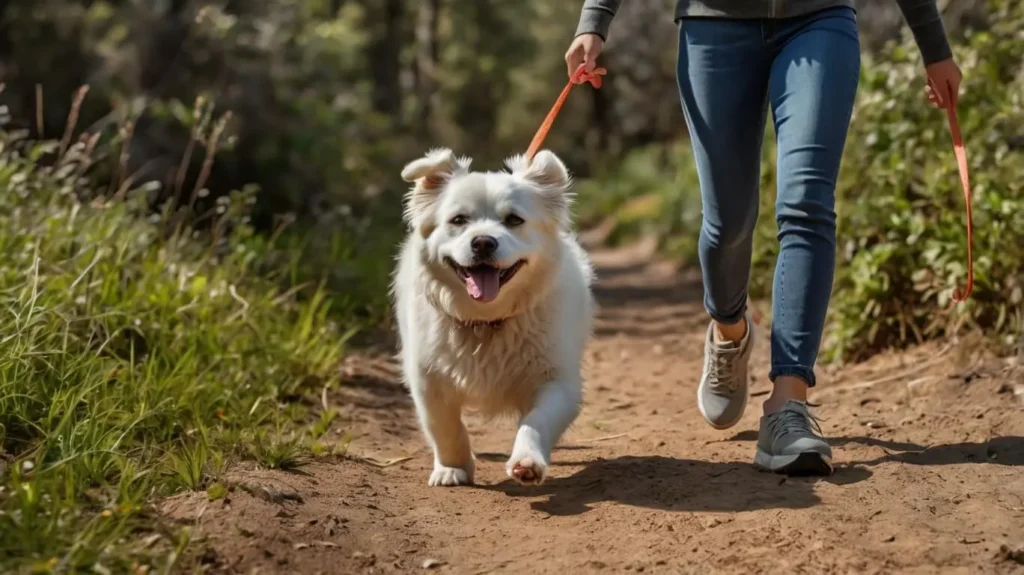
Always Ready to Play – Dogs Bring Energy Into Any Household
One of the most delightful things about dogs is their boundless enthusiasm for play. Whether it’s a game of fetch, a tug-of-war session, or simply chasing their tail around the living room, dogs have a unique way of bringing joy, movement, and spontaneity into any space they inhabit.
This playful spirit isn’t just entertaining — it’s contagious. Even on tough days, seeing your dog leap for a ball or zoom around the yard can lift your mood and draw out your inner child. Their genuine excitement and willingness to engage can shift the energy in a home from dull or quiet to vibrant and alive.
Play is also an important bonding activity between dogs and their humans. It strengthens your connection, builds trust, and provides opportunities for laughter and lightness, which are often missing in the stress of daily life. For families, dogs often become the “fun link” between generations — kids giggle at their antics, while adults find joy in their companionship.
Moreover, playtime with a dog has tangible benefits:
- Physical activity for both the dog and the owner
- Mental stimulation for the dog, which helps reduce destructive behaviors
- Stress relief through laughter and movement
- Improved cardiovascular health from regular interactive play
Even in small apartments or busy households, a dog’s presence encourages moments of physical activity, interaction, and genuine fun. They never say no to a game, never get bored of your company, and never stop wanting to explore or engage. Their consistent eagerness to play becomes a natural motivator — to get outside, to move more, and to be present in the moment.
For people living alone or families stuck in routine, a dog brings spark and spontaneity. They remind us that life isn’t just about tasks and responsibilities — it’s also about joy, movement, and sharing silly, unfiltered moments with a friend who’s always ready for more.
Help You Stay Active – Walks, Fetch, and Outdoor Play Benefit Your Physical Health
Dogs don’t just keep you company — they keep you moving. Whether it’s a brisk morning walk, an afternoon game of fetch, or simply chasing them around the yard, dogs offer a natural and enjoyable way to stay physically active. For many dog owners, their furry friend becomes the best kind of personal trainer: enthusiastic, consistent, and impossible to say no to.
In today’s sedentary world, where long work hours and screen time dominate daily routines, owning a dog can gently (and joyfully) encourage more outdoor activity. Most dogs need regular exercise, and that means you’ll find yourself getting up off the couch, lacing your shoes, and heading outside — even on days when motivation is low.
Daily walks, in particular, provide a range of physical health benefits:
- Improved cardiovascular fitness
- Lowered blood pressure and cholesterol
- Maintenance of a healthy weight
- Reduced risk of chronic illnesses like heart disease and diabetes
But it’s not just about structured walks. Spontaneous play sessions in the backyard, hikes through the woods, or even tossing a ball around at the park can add bursts of movement and fresh air to your day. And because it’s play, it doesn’t feel like a chore — it feels like quality time with a loyal friend.
For older adults or people struggling to maintain a fitness routine, dogs offer built-in accountability. Their eager eyes and wagging tails are a daily reminder that it’s time to get moving. For children, growing up with a dog often means more time spent outside and less time in front of screens — a positive habit that can last a lifetime.
Plus, getting outside with your dog doesn’t just help your body — it helps your mind. Physical activity paired with fresh air, sunshine, and the joyful presence of your dog can significantly reduce stress, improve mood, and boost mental clarity.
In essence, dogs turn exercise from something you have to do into something you get to do — together. Their energy inspires yours, creating a healthier, more active lifestyle that benefits both ends of the leash.
Silly Behavior and Funny Moments – Dogs Naturally Lift Your Mood
If there’s one thing dogs are experts at — besides being loyal and loving — it’s making us laugh. Whether they’re awkwardly sliding across hardwood floors, tilting their heads in confusion, “talking back” with hilarious barks, or zooming around the living room in a burst of excitement, dogs are full of silly, spontaneous behavior that can brighten even the darkest day.
These moments aren’t just cute — they’re emotionally healing. Laughter is a proven stress reliever, and dogs seem to instinctively know how to bring joy to everyday life. Their goofy antics and playful nature add lightness to your routine, often when you need it most.
Some common mood-boosting dog behaviors include:
- Chasing their tails in circles with unstoppable enthusiasm
- Barking at their own reflection in a mirror
- “Helping” with chores — like stealing socks while you fold laundry
- Making bizarre but adorable sleeping positions
- Suddenly sprinting through the house in a “zoomies” explosion
These funny habits don’t require any setup or planning — they just happen, and they invite laughter, connection, and presence. And best of all, dogs never seem to mind being the star of the show. In fact, many dogs thrive on the joy they bring their humans, responding with even more excitement when they see you smile or hear you laugh.
In a world filled with stress, schedules, and seriousness, dogs offer a refreshing contrast. They remind us not to take life too seriously, to embrace the unexpected, and to find delight in the little things — a squeaky toy, a game of tag, or the sound of treats rattling in a jar.
For many people, these funny, heartwarming moments aren’t just entertaining — they’re essential. They help create positive memories, lift spirits, and turn an ordinary day into something special. With a dog by your side, laughter isn’t a rare gift — it’s a daily experience.
Every Dog Has a Unique Personality – Which Adds Joy and Entertainment
One of the most delightful things about dogs is that, just like people, every single one has a personality all their own. From the energetic goofball who’s always ready to play, to the quiet cuddle bug who prefers naps and belly rubs, dogs come in all kinds of temperaments — and that’s a big part of why we love them so much.
Some dogs are natural comedians, always doing something silly to get your attention. Others are more serious and watchful, acting like tiny bodyguards with a heart of gold. You’ll find dogs that are independent and curious, and others that can’t bear to let you leave the room without following behind. Their individual quirks, preferences, and habits turn them into more than just pets — they become full-fledged members of the family, each with their own identity.
This diversity in dog personalities brings constant joy, entertainment, and emotional richness to a household. For instance:
- A dog who “talks” back when you ask them to do something can bring laughter to your routine.
- One who insists on sleeping in the oddest positions or collecting socks might become the family’s favorite joke.
- A quiet dog who always sits beside you when you’re feeling down can become a source of deep comfort.
These unique traits form strong emotional bonds. They allow owners to build real relationships with their dogs — not just based on caretaking, but on understanding, shared habits, and affection. And just like with people, getting to know your dog’s personality over time becomes a rewarding and entertaining journey.
What’s more, choosing a dog whose personality matches your own lifestyle — active, laid-back, affectionate, independent — makes the companionship even more fulfilling. It ensures compatibility and adds depth to the connection.
In the end, it’s these one-of-a-kind traits — the weird quirks, the funny preferences, the lovable stubbornness — that make dogs unforgettable. Their personalities are a constant reminder that love, laughter, and joy often come in the most unexpected (and furry) packages.
Dogs Help Build a Routine and Responsibility
Daily Walks and Feeding Schedules – Encourage Structure
One of the often-overlooked benefits of having a dog is how they naturally introduce structure and routine into your life. From morning walks to evening feedings, dogs thrive on consistency — and as a result, they help their owners establish healthier daily habits, too.
Dogs need regular care and attention, and that need translates into a predictable daily schedule. You wake up at a consistent time to feed them. You go outside for walks, rain or shine. You plan your evenings around playtime or winding down with your pup. This type of built-in routine brings a sense of rhythm and responsibility that can positively affect other parts of your life as well.
Here’s how dogs help create structure in daily living:
- Morning motivation – Dogs often wake up eager and ready to go, giving you a reason to start the day with purpose.
- Regular movement – Scheduled walks promote both your physical health and theirs, getting you outside even when you wouldn’t otherwise.
- Mindful mealtimes – Dogs often eat at the same times every day, which can remind you to stay on track with your own meals and hydration.
- Evening wind-down – As dogs settle in for the night, their calm presence helps cue your own nighttime routine and reduce screen time.
This consistent pattern can be especially helpful for people who work from home, live alone, are recovering from depression or burnout, or simply struggle with time management. Dogs, without even trying, become gentle reminders to pause, move, eat, and care — for them and for yourself.
In many ways, dogs act like life coaches on four legs: nudging you into healthier habits, grounding your day with purpose, and making the rhythm of life feel more natural and fulfilling. Over time, the structure they bring not only supports your responsibilities as a pet owner but enhances your overall well-being.
Great for Children – Teaches Empathy and Responsibility
Introducing a dog into a family home can have a profound and lasting impact on children. Beyond the joy and fun a dog brings, their presence offers children real-life lessons in empathy, responsibility, and emotional intelligence — traits that are foundational for their development and social growth.
When kids care for a dog — feeding, walking, grooming, or simply spending time with them — they begin to understand what it means to nurture another living being. They see firsthand that animals have feelings, needs, and emotions, just like people. This awareness helps cultivate empathy at a young age, as children learn to read their dog’s body language, respond to their moods, and treat them with kindness and patience.
Caring for a dog also provides an early and consistent lesson in responsibility. Whether it’s remembering to refill the water bowl, picking up toys, or going for daily walks, dogs rely on their humans to meet their needs — and kids quickly realize that their actions have a direct impact on their pet’s well-being. This builds confidence and instills a sense of accountability, even in small tasks.
Here’s how dogs positively influence a child’s growth:
- Encourages emotional sensitivity – Kids learn how their behavior affects others, helping them become more compassionate.
- Promotes routine and structure – Feeding and walking schedules teach time management and consistency.
- Reduces anxiety – A dog’s calm presence can be comforting during stressful times, helping children self-regulate their emotions.
- Builds communication skills – Talking to a dog (often without fear of judgment) helps kids open up and express themselves more freely.
Many parents find that children who grow up with dogs tend to be more cooperative, resilient, and socially adaptable. Plus, the bond formed between a child and their dog often becomes one of the most cherished and emotionally rich relationships of their early life — a friendship built on unconditional love and mutual trust.
In a digital age where many kids are glued to screens, a dog provides a real-world connection that engages all the senses and encourages outdoor play, physical activity, and heart-to-heart companionship. In short, dogs don’t just become playmates — they become teachers, therapists, and best friends rolled into one.
Creates a Healthy Lifestyle – Regular Activity and Mindful Living
Living with a dog naturally encourages a healthier, more balanced lifestyle, often without you even realizing it. From daily walks to intentional routines, dogs have a unique way of nudging their owners toward regular physical activity, emotional well-being, and more mindful living.
Dogs thrive on structure, outdoor time, and connection — and as their caregivers, we often adapt to those needs. The result? A life that feels more active, intentional, and emotionally grounded. Walking your dog every day might start as a duty, but over time it becomes a habit that supports cardiovascular health, increases vitamin D exposure, and reduces sedentary behavior. You move more, breathe deeper, and spend less time glued to screens.
But the health benefits go far beyond just physical fitness. Living with a dog often prompts people to:
- Spend more time in nature, which has proven mental health benefits
- Create daily routines, which support emotional regulation and productivity
- Be more present, as dogs encourage mindfulness through their own calm or playful energy
- Sleep better, thanks to reduced stress and a sense of companionship
Dogs also help cultivate mental clarity and emotional resilience. Their nonverbal communication and simple needs pull us out of overthinking and into the moment. Whether it’s sitting quietly with your dog on the porch or playing in the park without distractions, dogs gently steer us toward more mindful living.
In a world that often moves too fast, dogs slow us down in all the right ways. They remind us to pause for joy, rest with purpose, and move our bodies. Their influence isn’t just about exercise — it’s about creating a holistic lifestyle that balances movement, emotional care, connection, and daily rhythm.
For many dog owners, these lifestyle changes aren’t just improvements — they become essential. Over time, the presence of a dog doesn’t just complement your routine; it transforms it into something healthier, happier, and more meaningful.
Emotional Grounding – Caring for a Pet Adds Purpose to Everyday Life
At the heart of every bond between a person and their dog is something deeply grounding: a sense of purpose. Caring for a dog — feeding them, walking them, playing with them, simply being there — creates a powerful emotional anchor in daily life. It gives you someone to show up for, even on days when motivation feels low or the world feels heavy.
Dogs rely on their humans for love, security, and care. In turn, that responsibility fosters a deep emotional connection that roots you in the present moment. You’re not just going through the motions — you’re participating in a relationship built on mutual trust and presence. And that connection provides something many people crave: meaningful routine and emotional stability.
Here’s how dogs provide emotional grounding and a greater sense of life purpose:
- They give you a reason to get out of bed – Knowing your dog needs food, love, and exercise helps you take that first step, even on tough days.
- They shift focus away from stress – Focusing on your dog’s needs redirects energy from worry or anxiety toward connection and care.
- They encourage emotional regulation – Dogs have a calming presence that helps lower emotional reactivity and bring balance to your mood.
- They provide unconditional love – That dependable affection creates a safety net that many people rely on for emotional support.
For individuals going through loneliness, grief, depression, or major life changes, a dog’s presence can feel like a lifeline. Knowing that someone depends on you — and genuinely wants to see you, be with you, and share moments with you — adds structure and emotional weight to your day.
Even the simplest of moments — a quiet walk, a cuddle on the couch, a look exchanged during a tough moment — becomes a small but powerful reminder: you matter. Your dog looks to you not just for food or shelter, but for companionship. That sense of being needed and appreciated brings clarity and connection, helping you feel more emotionally grounded and purpose-driven.
In short, dogs don’t just fill our homes — they fill a vital space in our hearts and routines, offering love, meaning, and presence when we need it most.
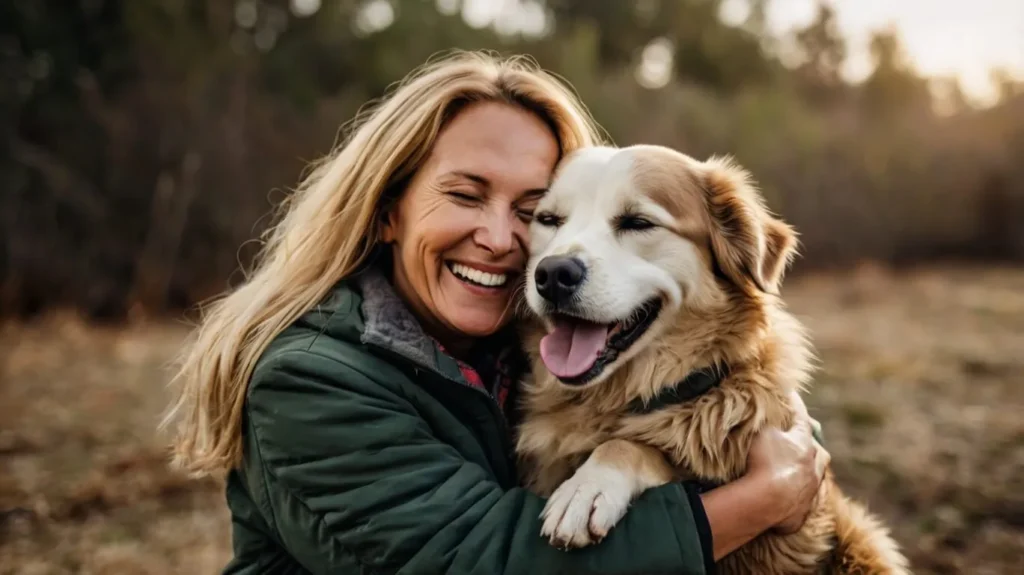
Dogs Are Truly Part of the Family
Deep Bonds with Owners – Dogs Often View Humans as Pack Leaders or Family
Dogs are more than just pets — to them, you are their pack. Rooted in their ancestral instincts, dogs are inherently social animals who form strong, loyal bonds with those they live with. Whether you live alone or have a full household, your dog will often see you as not just their caregiver, but as part of their family — their pack leader, protector, and best friend.
This deeply ingrained pack mentality stems from the domestic dog’s wolf ancestry. In the wild, wolves survive by forming close-knit groups where loyalty, structure, and hierarchy are essential. Even today, domesticated dogs carry that same need for connection and trust. They thrive on consistent companionship, clear roles, and emotional closeness — all of which they find in their bond with you.
Here’s how this pack-oriented nature translates into the modern dog-human relationship:
- Unshakeable loyalty – Dogs often follow you from room to room, not out of neediness, but because they feel safest and happiest by your side.
- Protective instincts – Many dogs will instinctively guard your home, family, or even your emotions, acting as loyal sentinels.
- Emotional mirroring – Because of their close bond, dogs often reflect your moods, becoming excited when you’re happy or calm when you’re upset.
- Trust and dependency – A dog that feels secure in your presence will look to you for guidance, affection, and support, just like a family member would.
Over time, this bond becomes more than routine — it becomes emotional glue that connects you on a deeper level. You start to understand your dog’s needs without words, and they, in turn, respond to your voice, gestures, and moods with almost uncanny intuition. This level of mutual understanding builds a relationship based on trust, love, and shared experience.
Many owners describe their dogs as “soulmates” or “family,” and it’s no exaggeration. When a dog sees you as their person, they’ll stand by you through anything — grief, change, celebration, or struggle. They don’t care about status, flaws, or mistakes; they simply care that you’re there.
And perhaps that’s why the human-dog relationship is so special: it’s pure, loyal, and deeply rooted in connection. When a dog chooses you as part of their pack, it’s a bond that runs deeper than words — it’s love in its most steadfast form.
Celebrate Milestones Together – Birthdays, Holidays, etc.
One of the most heartwarming aspects of having a dog is that they truly become part of your family — so much so that they share in your life’s special moments. Whether it’s a birthday, holiday, or a simple “gotcha day” (the anniversary of adoption), dogs are right there with you, offering unconditional love and joyful companionship that makes these occasions even more meaningful.
Many dog owners treat their pets as beloved family members, and it’s become increasingly common to include them in all sorts of celebrations and traditions. From themed birthday parties with dog-friendly cake to matching Halloween costumes or wrapping presents for your pup at Christmas, dogs don’t just observe these moments — they become part of them. Their involvement brings an added layer of fun, emotion, and connection.
Here’s how dogs help us celebrate life’s milestones:
- Birthday joy – Celebrating your dog’s birthday or adoption anniversary is a fun way to reflect on your bond and create special memories. Many owners throw small parties, give treats, or take their dog on an adventure to mark the day.
- Holiday spirit – Dogs often get excited about the festive energy around holidays. Whether it’s posing for Christmas photos, joining a family barbecue, or “helping” open gifts, their presence brings laughter and warmth to the celebration.
- Emotional presence during key life events – Dogs are by your side during highs and lows: new jobs, moving to a new home, welcoming a baby, or navigating a breakup. Their consistent companionship adds emotional depth and support through all of life’s chapters.
Including dogs in these milestones strengthens the bond you share. For single individuals, couples without children, or empty nesters, celebrating with a dog fills emotional space that might otherwise feel quiet or empty. For families with kids, it teaches the value of cherishing life’s little joys and recognizing pets as important emotional companions.
In the end, dogs don’t need gifts or decorations to feel the love — they simply enjoy being part of your world. But when you make the effort to include them in these cherished moments, it only deepens the love and loyalty between you.
After all, a dog’s greatest joy is simply being with you — especially when you’re happy. And sharing milestones with a wagging tail and a happy bark makes every celebration feel more complete.
Protective Instincts – Dogs Often Defend and Look After Their Loved Ones
One of the most endearing and admirable qualities of dogs is their natural protective instinct. Whether they’re alerting you to a strange noise outside, standing between you and a perceived threat, or simply keeping a watchful eye on your children, dogs have an almost instinctual desire to protect the people they love. It’s a trait rooted deep in their ancestral behavior — and one that continues to shine in modern-day companionship.
Dogs view their humans not just as owners, but as members of their pack — and packs look out for one another. This loyalty drives many dogs to adopt a guardian role in the household. Even small breeds with big personalities will bark or stand tall when something seems “off,” determined to alert you or step in, no matter their size.
Here’s how dogs show their protective nature:
- Vigilant awareness – Dogs are always on alert. They quickly pick up on unfamiliar sounds, strangers near the home, or changes in your behavior, reacting swiftly to ensure your safety.
- Instinctive defense – In threatening situations, many dogs will instinctively position themselves between you and the danger. They may growl, bark, or take a defensive stance to shield you.
- Emotional protection – Dogs often “guard” people when they sense sadness, anxiety, or illness, staying close and offering comfort — as if to say, “I’ve got you.”
- Guarding loved ones – Whether it’s lying near a sleeping baby, watching over an elderly family member, or staying by your side during a tough moment, dogs intuitively protect those they care about.
Some breeds have been specifically developed for guarding roles — like German Shepherds, Rottweilers, or Dobermans — but protectiveness isn’t limited to breed or size. Many mixed-breed and toy dogs show fierce loyalty in the face of unfamiliar or threatening situations.
This instinct isn’t about aggression — it’s about devotion. A protective dog isn’t trying to dominate or control; they’re showing that they care deeply about your well-being. Their actions come from a place of deep-rooted love and loyalty, and that constant presence offers a powerful sense of comfort and security.
For many people, especially those who live alone or in uncertain environments, a dog’s protective presence is not only reassuring but empowering. Knowing that someone always has your back — someone who would risk themselves to protect you — creates a bond that goes beyond words.
In a world full of uncertainties, a dog’s steadfast watchfulness becomes a daily reminder:
You’re not alone. You’re safe. You’re loved.
Adopted Dogs Show Immense Gratitude – Rescue Dogs Often Form Deep Emotional Attachments
There’s something incredibly special about the bond between a rescue dog and their new human. When you adopt a dog — especially one that has faced hardship, abandonment, or time in a shelter — you’re not just giving them a home. You’re giving them a second chance at love, safety, and belonging. And in return, many adopted dogs respond with a kind of devotion and gratitude that’s truly heart-melting.
People who adopt often describe their rescue dog as more affectionate, more loyal, and deeply in tune with their emotions. These dogs seem to understand, in their own way, that their life has changed — and they don’t take it for granted. While they may come with emotional scars, once trust is built, rescue dogs often form powerful emotional attachments with the people who showed them compassion.
Here’s why adopted dogs often exhibit such profound gratitude:
- They remember past hardships – Dogs may not remember every detail, but they carry emotional imprints. When life improves, they respond with affection, loyalty, and attentiveness.
- They form strong bonds with their savior – Once adopted, rescue dogs frequently become deeply attached to the person who gave them a new life, often following them everywhere and showing consistent affection.
- They thrive on stability and love – Shelter life can be stressful and uncertain. Once in a stable, loving home, adopted dogs blossom — and they often express their happiness with increased playfulness, cuddles, and trust.
- They give back emotionally – Many rescue dogs seem to sense when their owner is struggling. Perhaps because they’ve been through tough times themselves, they become especially attuned to human emotion and often offer comfort in quiet, intuitive ways.
The emotional journey of adopting a dog — from fearful or shy beginnings to warm, joyful companionship — is incredibly rewarding. It’s a transformation built on patience, trust, and mutual healing. In fact, many adopters find that they didn’t just rescue the dog — the dog rescued them, too.
Whether curled at your feet or waiting by the door when you return home, an adopted dog becomes a living reminder of resilience, hope, and the healing power of love. Their eyes say it all: “Thank you for choosing me.”
Conclusion
Recap the 10 Heartwarming Reasons
As we’ve explored, dogs aren’t just pets — they’re loyal friends, emotional anchors, and joyful members of the family. People love dogs for countless reasons, but these 10 heartwarming qualities truly stand out and explain why dogs hold such a cherished place in our lives:
- Unconditional Love and Loyalty – Dogs offer a type of love that’s unwavering, never judging or fading, no matter the circumstances.
- Emotional Sensitivity – They can sense our emotions — comforting us during sadness, celebrating our joys, and staying close when we need it most.
- Stress Relief and Mental Health Support – From lowering cortisol to acting as emotional support animals, dogs help ease anxiety and promote emotional balance.
- Energetic Companionship – Their playful spirit and excitement for life bring a lively energy into the home, encouraging more smiles and laughter.
- Physical and Emotional Wellness – Dogs keep us moving, encourage daily routines, and support a more active, mindful lifestyle.
- Unique Personality and Joyful Moments – Every dog has a distinct character, full of quirks and funny behaviors that make life more entertaining and lovable.
- Family and Child Development – Dogs help teach children empathy, responsibility, and kindness, playing an important role in emotional growth.
- Protective Nature – Many dogs instinctively protect their loved ones, making us feel secure and cared for at all times.
- Celebrating Life Together – From birthdays to holidays, dogs are part of our traditions, making special moments even more memorable.
- Rescue and Gratitude – Adopted dogs often form the deepest bonds, offering profound love and loyalty in return for a second chance at life.
Each of these reasons highlights why dogs are more than just animals we care for — they become soul companions, life enhancers, and constant sources of comfort and joy. Whether you’ve had dogs your whole life or are just beginning to understand their magic, these heartwarming qualities show exactly why people love dogs so deeply.
Reinforce How Dogs Benefit Both Our Emotional and Physical Lives
Dogs play a unique and powerful role in enriching our lives on multiple levels — emotionally, mentally, and physically. Their presence creates a harmonious balance that nurtures our well-being, making them more than just pets; they are true partners in health and happiness.
Emotionally, dogs offer unwavering companionship that helps reduce feelings of loneliness, anxiety, and depression. Their ability to read and respond to our moods provides comfort in moments of stress or sadness. The simple act of petting a dog can trigger the release of oxytocin — the “love hormone” — which fosters feelings of calm and connection. Dogs also encourage us to be more mindful and present, helping us ground ourselves during hectic or overwhelming times. Many people find that having a dog helps them build resilience and emotional stability because dogs create a safe, nonjudgmental space where we feel accepted and loved unconditionally.
On the physical side, dogs naturally encourage us to be more active. Daily walks, playtime, and outdoor adventures promote cardiovascular health, increase stamina, and improve overall fitness. This increased activity helps reduce risks associated with sedentary lifestyles, such as obesity, heart disease, and high blood pressure. Beyond exercise, dogs also help establish healthy routines. Feeding schedules, bathroom breaks, and consistent care give structure to our days, which can improve sleep patterns and overall lifestyle balance.
The interplay of these emotional and physical benefits creates a holistic improvement in quality of life. When our bodies are active and our minds feel supported, we experience better mood regulation, increased energy, and enhanced social connection — often through meeting fellow dog owners during walks or at dog parks.
In summary, dogs enrich our lives by being both our emotional anchors and physical motivators. They help us live fuller, healthier, and happier lives by simply being themselves — loving companions who inspire us to care for them, and in turn, care for ourselves.
End with a Relatable Quote or Call-to-Action
Wrapping up your blog post with a heartfelt quote or a compelling call-to-action helps leave a lasting impression on your readers. It connects emotionally and encourages them to reflect on their own relationship with dogs — or even inspires them to start one.
Quotes from famous dog lovers or heartfelt sayings capture the essence of why dogs mean so much to us. For example:
- “Dogs do speak, but only to those who know how to listen.” — Orhan Pamuk
- “A dog is the only thing on earth that loves you more than he loves himself.” — Josh Billings
- “Until one has loved an animal, a part of one’s soul remains unawakened.” — Anatole France
Including a quote like these reinforces the deep emotional bond humans share with dogs and reminds readers why that connection is so precious.
Alternatively, a clear call-to-action invites readers to take the next step — whether it’s adopting a dog, volunteering at a shelter, or simply spending more quality time with their furry companions. For example:
- “Thinking of adopting a furry friend? Your heart will thank you.”
- “Ready to experience the joy and unconditional love only a dog can bring? Visit your local shelter today.”
- “Cherish every wag, every bark, and every cuddle — dogs make life better.”
A well-chosen quote or motivating CTA can inspire readers to deepen their bond with dogs or even open their homes to a rescue dog in need. It’s a perfect way to end on a positive, hopeful, and uplifting note — leaving your audience feeling connected, inspired, and ready to share the love.

